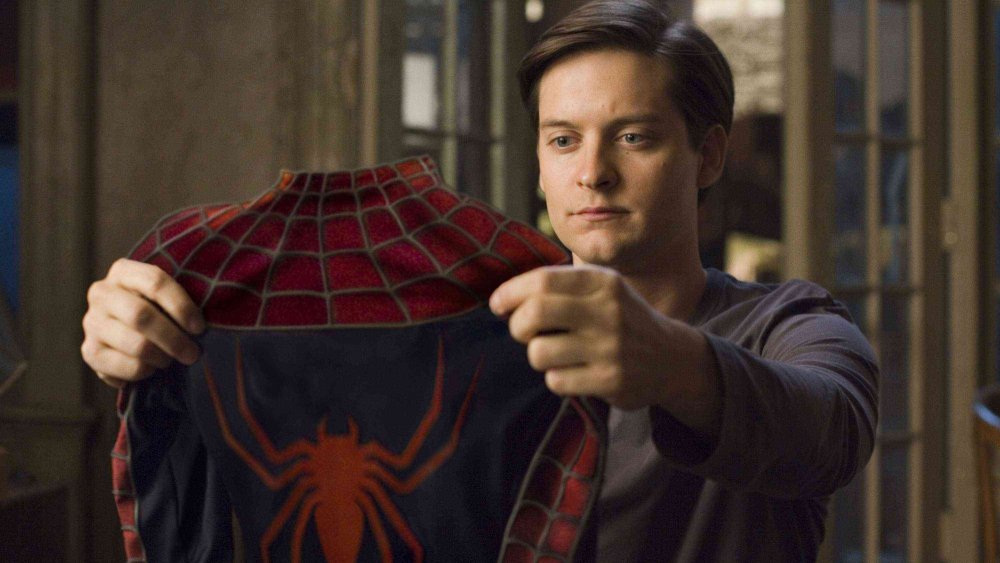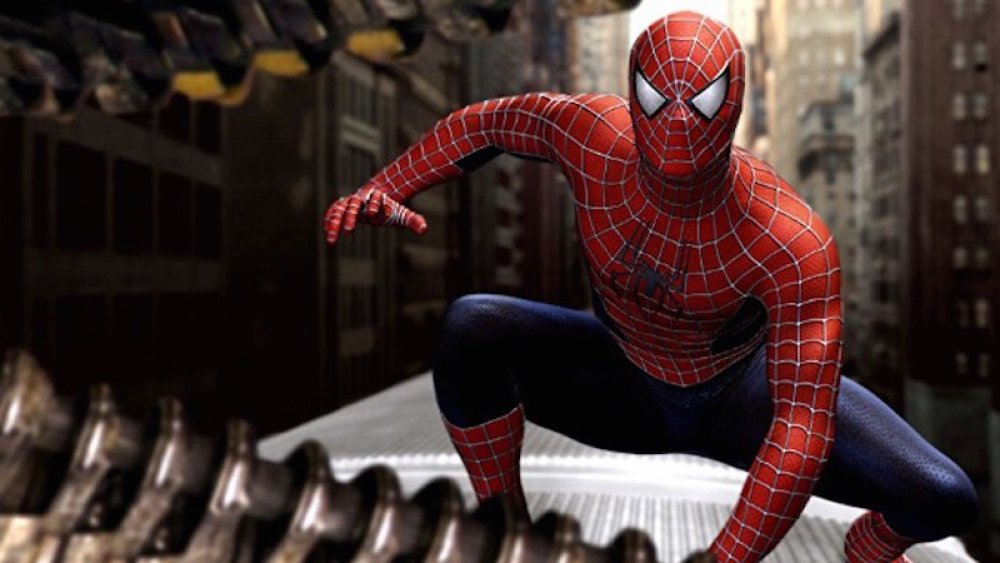How James Cameron Changed Spider-Man In A Big Way
It's hard to imagine a world in which superhero flicks aren't considered viable blockbusters by the major studios, but that was the world we lived in before the early 2000s — when the release of Fox's first X-Men trilogy and Sony's Spider-Man clearly demonstrated the genre's potential. What a difference two decades makes. Spider-Man now has two big studios engaged in a never-ending tug-of-war over the property, but back in 2002 it took a herculean creative effort from director Sam Raimi and legendary screenwriter David Koepp just to get a film off the ground.
Now, new information has emerged that James Cameron's un-produced Spider-Man vision may have had an outsized impact on the development of the Raimi-Koepp project that eventually brought the eight-legged wonder to screen. Back in the 1980s, James Cameron (who almost fought Harvey Weinstein at the Oscars) became briefly attached to a cinematic attempt to realize Spidey that never came to fruition. While we never got to see the Cameron Spider-Man film, a "scriptment" detailing the story beats that the Avatar director worked out circulated among fans for years. In a recent interview, Koepp told IGN that he and Raimi actually had access to these development materials, and that Cameron's ideas had a serious influence on the 2002 film.
Koepp didn't have a lot to work with when writing Spider-Man
In Hollywood, it's not uncommon for an in-demand screenwriter like Koepp to be handed substantial development materials to work with while creating the actual screenplay. Beat sheets, outlines, treatments, scriptments, character profiles — these documents are usually created by other writers further down the line or executive producers shepherding the project. Development materials are handed over to the screenwriter at the time of attachment to give the writer some sense of the type of film that the producers are expecting. Because Spider-Man was so fraught with legal disputes, however, Koepp didn't have access to any development materials at all.
"I never saw any previous versions from development because it had just come out of litigation as I recall," Koepp told IGN. "And so if there were other versions, they were like canon in the '80s or early '90s, but [Cameron's] treatment was very influential."
It sounds like the Cameron scriptment served as a kind of substitute for all the background material that was tied up in litigation at the time.
Shocker: James Cameron had a visionary approach to superhero filmmaking
Koepp described the experience of stepping into a big-budget superhero project at a time when these kinds of films just weren't being made, "I had a lot of my own specific thoughts about what the movie ought to be, because I had been a Spider-Man fan as a kid and young adult, but his treatment, it just took it seriously. It took Peter seriously as a character and it took a superhero movie seriously as a genre. And you hadn't seen that before."
At the time, Fox's X-Men — often credited with launching the superhero film craze — hadn't yet been released. X-Men just barely beat Spider-Man to the box office, premiering while Koepp's Spider-Man was still in production.
Part of Cameron's effort to take superhero stories seriously included a key alteration to Spidey that worked its way into Koepp's script. Cameron apparently had the original idea to imbue Peter Parker with organic web-shooters instead of mechanical ones. Fans will likely remember that Maguire's Spider-Man gains this power from the radioactive spider bite, even though this detail isn't present in the classic comics.
Subsequent screen versions — including both Andrew Garfield's and Tom Holland's — have done away with the organic webs, but Cameron's idea remains an indelible piece of Spider-Man's cinematic history.


